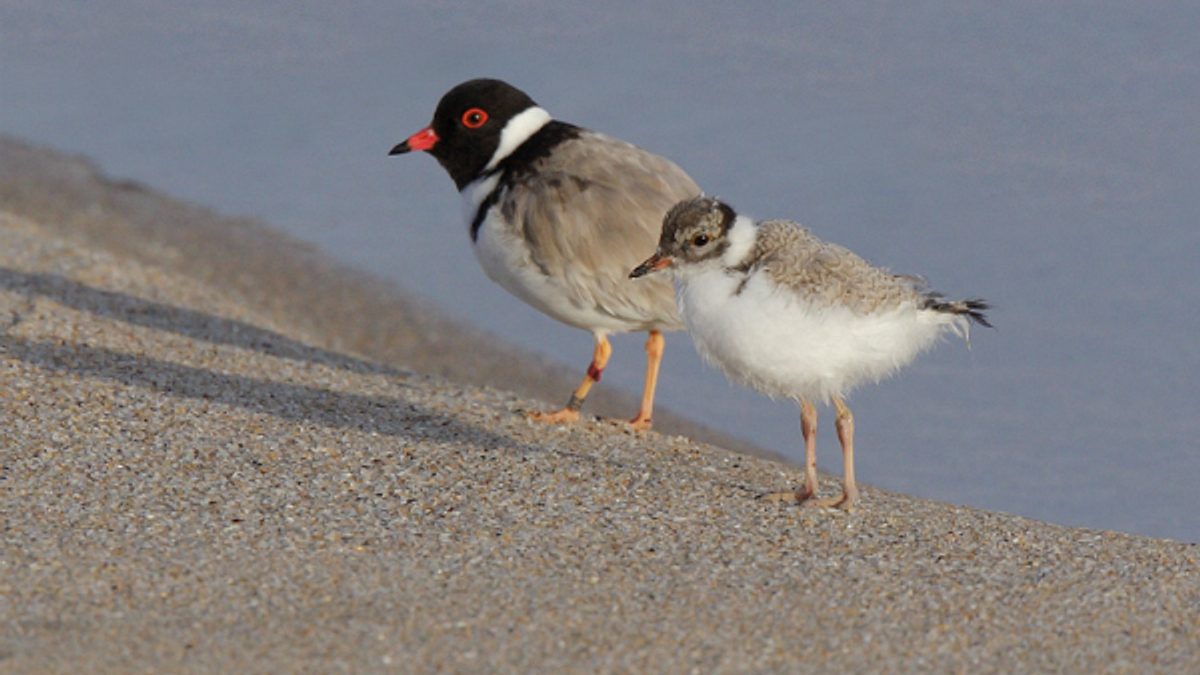‘Citizen Scientists’ help newly-listed vulnerable beach birds
A small and much-loved beach nesting bird, the Hooded Plover, has just been listed as vulnerable under the Environment Protection and Biodiversity Conservation Act (EPBC Act).
This announcement comes as around 30 volunteer ‘Citizen Scientists’ are in the middle of a two week intensive shorebird survey counting Hooded Plovers and other shorebirds on Eyre Peninsula’s extensive coastline.
Eyre Peninsula Natural Resource Officer Rachael Kannussaarr said the Hooded Plover’s listing is bitter-sweet.
“We’ve long-known Hooded Plovers are struggling to survive and warrant legislative protection, however, it’s sad to see another species added to the list,” Ms Kannusssaar said.
“The listing was made possible due to information gathered by volunteers and others.
“Under the EPBC Act sufficient information is necessary to demonstrate why a species needs listing.
“So we need to give a big thank you to volunteers who have been collecting data on breeding pairs every season.”
Hooded Plovers breed on many of Eyre Peninsula’s sandy beaches from August through to January each year. They prefer undisturbed, long, windswept flat beaches with plenty of seaweed where the foredunes are covered with tussock grasses. They can also be found on the edges of inland salt lakes.
EP surveys show there are still breeding pairs on many beaches, and young chicks. However not much is known yet about the survival rate of those chicks.
Extreme temperatures, storm tides and silver gull predation are just some of the natural threats to Hooded Plovers.
Studies in other regions show that fox baiting can help chicks survive and this is being carried out in many national and conservation parks as well as on private land.
Hooded Plovers are shy birds which are rarely found on popular public beaches. Parent birds are easily disturbed, and can leave eggs and chicks unprotected from predators like gulls, foxes and dogs.
Off-road vehicles also take their toll as nests are difficult to see and drivers can unknowingly run over chicks and eggs and disturb breeding pairs.
“Driving near the water’s edge away from breeding sites and keeping dogs away from sensitive breeding areas are a couple of ways we can help Hooded Plovers,” Ms Kannusssaar said.
Volunteer Citizen Scientist Rochelle Berryman said she has been monitoring two adult Hooded Plover pairs on two eastern Eyre Peninsula beaches this year.
“So far this season they’ve only produced one chick, despite the birds having laid approximately eight eggs over a number of nesting attempts.
“One nest was swept away during a high tide, however we suspect other nests have failed due to vehicles driving above the high tide mark and the presence of off leash dogs”.



